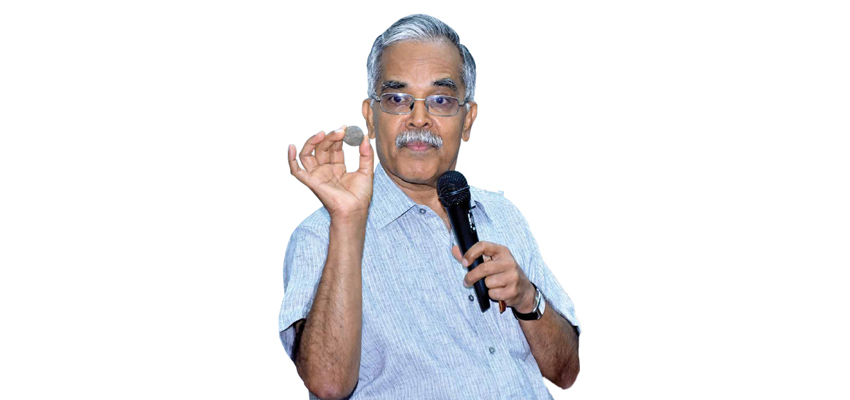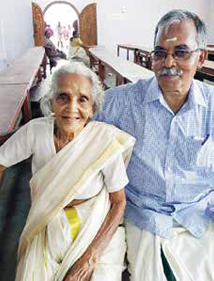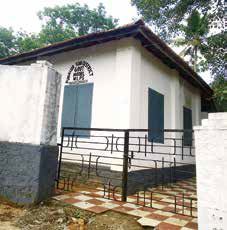Prof. Pillai was born in a village in Kerala into a family...

Prof. Pillai was born in a village in Kerala into a family of farmers. He went to a primary school that was essentially a thatched shed with a handful of teachers. He walked 10 miles daily to go to high school and completed his basic education in vernacular medium.
At seventeen, owing to financial difficulties he left his home village and moved to Bengaluru, working for nine months almost as a domestic hand in a distant relative’s house before joining the Indian Air Force.
During the school years, kerosene wick lamp and cow dung plastered bare floor was his study space at home shared by six siblings as well. While in Bengaluru, the margins of newspaper litters picked up from the streets and garbage dumps served as his notepads.
Also, in the year after that, street lamps and roadsides served as his study tables. After fifteen years of service, during which time he simultaneously obtained his BA, MA, LLB, and MBA degrees, preceded by a stint in private industry before accepting a faculty position at the Symbiosis Institute of Business Management (SIBM) in 1985. In 1993, he conceptualized and established for the Symbiosis family the Symbiosis Centre for Management & Human Resource Development (SCMHRD), staying at its helm till his departure in 2004. For a brief period, Prof. Pillai was also acting as a director for SIBM alongside heading SCMHRD.
Prof. M.S. Pillai started his mission of imparting transformational education when he started SCMHRD, a pioneering institution, in 1993 with 32 students. By the time he stepped down in 2004, applicants to the two-year programme at SCMHRD numbered more than 20,000. Like the Sadhana Institute, SCMHRD too functioned in the non-formal sector, without AICTE, UGC, government approvals or affiliations during this period. Its growth and successes were a result of Prof. Pillai’s partnership through the involvement of students, the patronage of recruiting companies that demanded exemplary quality, leadership capacities of SCMHRD students and the value system ingrained in them, as also their ability to work stress-free.
“My next plan is to die happily...”
In his last address to students in 2018, on the occasion of the 20 year reunion of the 1996-98 batch of SCMLD, Prof. M. S. Pillai, said, (what on hindsight seems prophetic) “somebody asked me what is your next step? I said my next step is planning to die and planning to die happily, planning to die healthy, without giving any kind of trouble to anyone…’’
 Prof. M. S. Pillai with his mother
Prof. M. S. Pillai with his mother Whatever difficulty you face in your lifetime, I have deep faith that God is telling you to go away from it, overcome it or he is opening some new dimension for you. So, when SCMLD began, God was telling me to run it but not get into the MBA education mess. For, by 1983, there were only 102 institutions in the country, with 60 seats in each division. Now after the AICTE norms which came in, there are 4600 institutions which may have five to six lakh MBA students. Where is the placement possibility unless you are extraordinarily competent?
So, now the idea is, this SCMLD will continue, but the MBA programme will not. So, the mission is now to train only girls from the poorest of the poor, but they must be bright enough to take this programme and then train them and place them as executives or management trainees in the corporate world and civil services. Therefore, I decided an eleven- month programme, which has come out of my last 35 years of experience, meeting people and dealing with companies. The programme is designed and ready. People have advised me to not give it free of cost. So, we have decided to pick only 60 girls, out which 20 will get free training and for the rest of the 40, we will keep nominal fees.
The concept that I am giving is not the money; it is the mission, the passion and what you can give to the world which is important in life
 Prof. M. S. Pillai’s school
Prof. M. S. Pillai’s school In the land that we have acquired, we are going to plant medicinal plants in three acres and in the other three acres we will build a small setup, maybe 15,000-20,000 square feet, we may construct some 30 rooms for corporate training, for faculty members, camps for children - all oriented towards leadership development and being human. We all say we are human beings, but the question is are we being human? This can be achieved by only educating women because the cradle of leadership that begins at home. So, you all have made money, I didn’t make any money, I don’t have any money. I live on my Rs.15,000 Air Force pension, which looks respectable, now. When Modiji announced this increment, I was the happiest person.
Somebody asked me what is your next step? I said my next step is planning to die and planning to die happily, planning to die healthy, without giving any kind of trouble to anyone. I want to maintain my health as it is now—I don’t suffer from any ailments, no diabetes, no high blood pressure, and kidney is also working fine. I think my Rs.15,000 pension will perhaps increase to Rs.20,000 in another five years. This Rs.15,000 is too big a sum of money for me; my wife is happy, now that she is putting aside some.
The concept that I am giving is not the money; it is the mission, the passion and what you can give to the world which is important in life. Money can buy many things but I wanted to buy an Ayurvedic garden because I just want to create a model to show that nature has been so nice to us and has given everything to us.